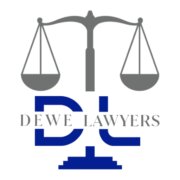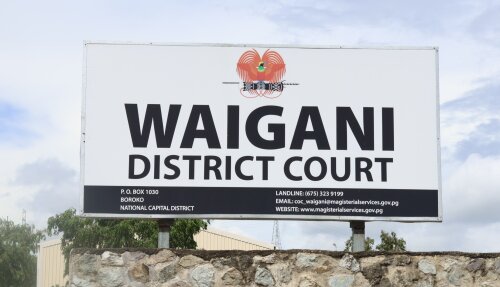Best Drug Crime Lawyers in Papua New Guinea
Share your needs with us, get contacted by law firms.
Free. Takes 2 min.
Or refine your search by selecting a city:
List of the best lawyers in Papua New Guinea
About Drug Crime Law in Papua New Guinea
Drug crime in Papua New Guinea is a growing concern, reflecting a rise in the use and trafficking of illicit substances. The country's geographical location makes it a potential transit hub for drug trafficking. In response, Papua New Guinea has stringent laws designed to combat drug-related offenses. The legal framework targets a wide range of activities, from possession and distribution to manufacturing and trafficking. The penalties for drug crimes can be severe, including lengthy prison sentences and substantial fines, as part of the country's efforts to deter illegal drug activities and ensure public safety.
Why You May Need a Lawyer
Legal issues related to drug crimes are complex and can have serious consequences. Individuals may require legal assistance in various scenarios, including being accused of possessing illegal drugs, facing charges of drug trafficking or manufacturing, or if they believe their rights have been violated during a drug-related search or arrest. A lawyer with expertise in drug crime law can provide critical guidance, help interpret complex statutes, and represent individuals in court proceedings to ensure the best possible outcome.
Local Laws Overview
Papua New Guinea's drug laws are primarily governed by the Controlled Substances Act, which outlines the illegal drugs, their classifications, and the penalties associated with each type of drug-related offense. Possession of controlled substances without a valid prescription is illegal. The laws also address the cultivation and distribution of drugs, with specific focus on preventing the trafficking of illicit substances. Enforcement of these laws is stringent to curb both domestic drug use and international drug trafficking. Additionally, there are regulations around the importation and exportation of substances that might be used to manufacture illegal drugs.
Frequently Asked Questions
What are the penalties for drug possession in Papua New Guinea?
Penalties for drug possession can vary depending on the type and quantity of the drug. They often include imprisonment and fines. Higher quantities or involvement in trafficking can lead to more severe penalties.
Can I be charged for having drug paraphernalia?
Yes, possession of drug paraphernalia with the intent to use it for illegal drug purposes is considered a criminal offense and can lead to charges.
What should I do if I am arrested for a drug-related offense?
If arrested, it is crucial to exercise your right to remain silent and contact a lawyer immediately. Avoid making any statements without legal counsel present.
Are there any diversion programs available for first-time offenders?
Some first-time offenders may be eligible for diversion programs which focus on rehabilitation rather than punishment. A lawyer can provide information on eligibility and process.
How does Papua New Guinea's legal system handle minors involved in drug crimes?
Minors may face different legal proceedings, focusing more on rehabilitation. However, serious offenses can lead to severe consequences similar to adult offenders.
Can police search my property without a warrant?
Typically, police need a warrant to search your property. However, there are exceptions in certain exigent circumstances. Legal counsel can advise if your rights were violated.
What constitutes drug trafficking under local law?
Drug trafficking generally involves the manufacturing, distributing, or selling of illegal drugs. It is considered a severe offense with heavy penalties.
Could a drug crime charge affect my employment?
Yes, drug convictions can impact current and future employment opportunities, especially for those requiring background checks or working in sensitive positions.
Are prescription drugs subject to the same regulations?
Possession or distribution of prescription drugs without a valid prescription is illegal and subject to regulatory laws just like other controlled substances.
What legal defenses are available for drug crime charges?
There are various defenses, such as unlawful search and seizure, entrapment, or lack of intent. A qualified lawyer can assess your case to determine the best defense strategy.
Additional Resources
For legal assistance and further information on drug crimes, consider reaching out to the following resources:
- Law Society of Papua New Guinea: Provides listings of qualified lawyers.
- Papua New Guinea Police Force: For reporting drug crimes and inquiries about specific cases.
- Papua New Guinea's Department of Justice and Attorney General: Offers information on the legal framework and processes.
- Local legal aid organizations: Offer assistance to those unable to afford a lawyer.
Next Steps
If you or someone you know is facing drug crime charges, it is crucial to seek legal advice immediately. Here are steps you can take:
- Schedule a consultation with a lawyer specializing in drug crimes to discuss your case and understand your legal rights.
- Gather and organize all relevant documents and evidence related to your case, such as arrest records and witness information.
- Consider seeking support from family or community groups while navigating legal proceedings.
Lawzana helps you find the best lawyers and law firms in Papua New Guinea through a curated and pre-screened list of qualified legal professionals. Our platform offers rankings and detailed profiles of attorneys and law firms, allowing you to compare based on practice areas, including Drug Crime, experience, and client feedback.
Each profile includes a description of the firm's areas of practice, client reviews, team members and partners, year of establishment, spoken languages, office locations, contact information, social media presence, and any published articles or resources. Most firms on our platform speak English and are experienced in both local and international legal matters.
Get a quote from top-rated law firms in Papua New Guinea — quickly, securely, and without unnecessary hassle.
Disclaimer:
The information provided on this page is for general informational purposes only and does not constitute legal advice. While we strive to ensure the accuracy and relevance of the content, legal information may change over time, and interpretations of the law can vary. You should always consult with a qualified legal professional for advice specific to your situation.
We disclaim all liability for actions taken or not taken based on the content of this page. If you believe any information is incorrect or outdated, please contact us, and we will review and update it where appropriate.
Browse drug crime law firms by city in Papua New Guinea
Refine your search by selecting a city.












